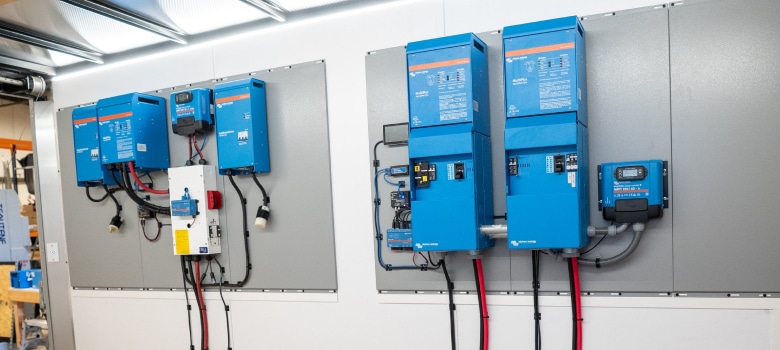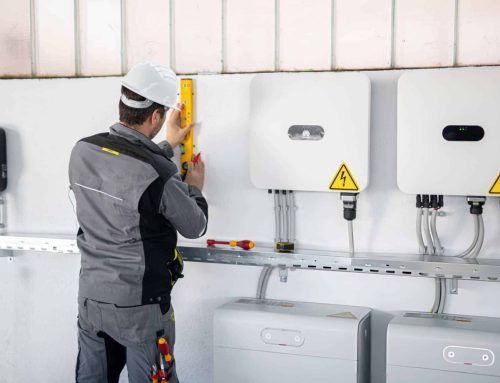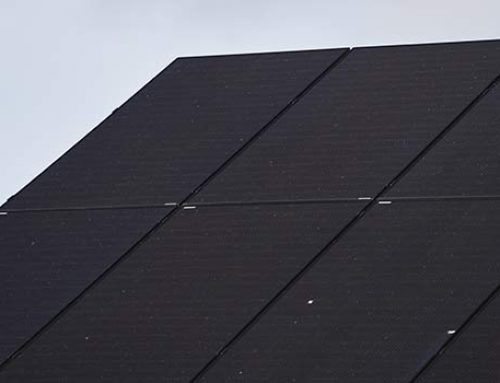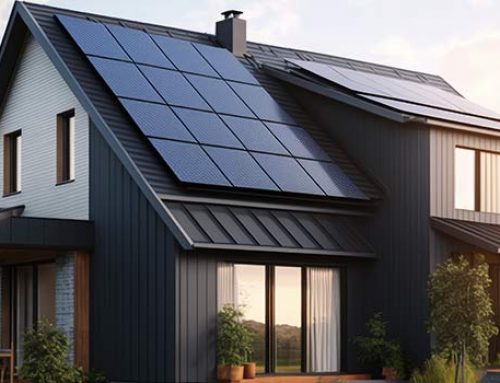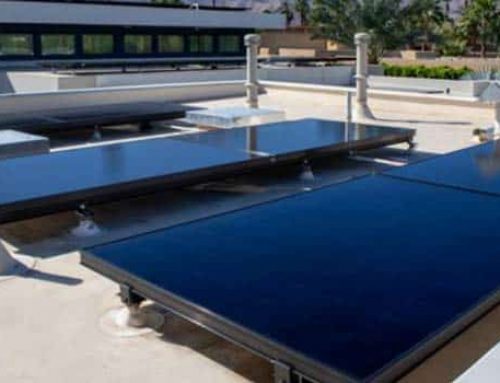If you’re an Adelaide homeowner considering stepping into the world of off-grid solar power, you’re about to make a decision that’s not only eco-friendly but also incredibly empowering.
But, before you enjoy the advantages of renewable energy, there’s a key component in your setup that demands your attention – the inverter.
In this guide, we will cover:
- The best inverter brands on the market
- Key factors in selecting your ideal inverter
- Average inverter costs (and how to save money)
- Final thoughts on the best inverters available
In the world of solar power, the inverter is the unsung hero, quietly and efficiently converting the sun’s energy into usable power for your home.
This crucial piece of technology can make or break your experience. That’s why we’re here to guide you through the best inverter options for an off-grid system in Adelaide.
In this article, we’ll explore a range of inverters that stand out in performance, durability, and compatibility with Adelaide’s climate. Our selection is based on rigorous research, customer feedback, and our expertise in solar solutions.
Choosing the right inverter is crucial. It’s not just about ensuring your lights stay on; it’s about maximising efficiency, minimising maintenance, and guaranteeing the longevity of your investment.
So, let’s dive in and illuminate the path to finding your ideal solar inverter for an off-grid adventure in Adelaide.
ENERGY BUSTER TIPS
|
Leading Inverter Brands
Fronius
Fronius, with its strong presence in Australia, is known for its innovative and high-quality inverters. These inverters are particularly favoured for their smart grid features and long-lasting performance.
Pros:
- Smart Grid Ready: Advanced features for future-proofing against evolving grid requirements.
- High Performance: Consistently high efficiency under various conditions.
- Robust Monitoring System: Detailed real-time data tracking and analysis.
- Durability: Excellent build quality suited for Australian climates.
Cons:
- Cost: Generally higher priced, reflecting their advanced technology.
- Complexity: This may require professional assistance for setup and troubleshooting.
Sungrow
Sungrow is a popular choice in Australia for those seeking a balance between cost and performance. These inverters are known for their reliability and are a great fit for residential and commercial setups.
Pros:
- Affordable: Offers good value for money.
- Reliable Performance: Stable and efficient power conversion.
- User-Friendly Interface: Easy monitoring and control systems.
- Versatile Range: Wide range of products to suit different needs.
Cons:
- Limited Advanced Features: Not as feature-rich as some higher-end models.
- Variable Build Quality: Some models may be less durable than their premium counterparts.
GoodWe
GoodWe has rapidly gained popularity in Australia for its range of high-quality, budget-friendly inverters. These inverters are a great choice for homeowners looking to balance cost and functionality.
Pros:
- Cost-Effective: Competitive pricing without compromising on quality.
- Wide Product Range: Offers a variety of models to suit different systems.
- Efficient Energy Conversion: Reliable performance with good efficiency ratings.
- Simple Installation: User-friendly design makes DIY installation feasible.
Cons:
- Younger Brand: Less established track record compared to older brands.
- Limited Premium Options: More focused on the budget to mid-range market.
Key Factors in Selecting Your Ideal Inverter
Climate Compatibility
Adelaide’s climate can vary significantly, from scorching summers to cool, wet winters. This weather variance directly impacts the performance of solar inverters. When choosing an inverter, it’s crucial to consider how well it can handle extreme temperatures and changing environmental conditions.
Inverters with a wide operating temperature range and robust weatherproofing are ideal for Adelaide’s climate. For instance, models like the SMA Sunny Boy and OutBack Power SkyBox are known for their durability in diverse weather conditions, ensuring consistent performance throughout the year.
Moreover, the inverter’s cooling mechanism plays a pivotal role in its longevity and efficiency. Passive cooling systems are generally quieter and have fewer moving parts, reducing maintenance needs, while active cooling systems offer better performance in extreme heat but may require more upkeep.
Consider your local climate’s demands and your willingness to maintain the system when making a decision. For example, the Fronius inverter’s active cooling technology might be more suitable for areas in Adelaide that experience intense summer heat.
System Size and Scalability
The size of your solar system is a critical factor in choosing the right inverter. Inverters are rated by their capacity to handle incoming power from solar panels, and selecting one that matches your system’s size is essential for optimal performance.
For smaller residential systems, microinverters like the Enphase IQ7+ are ideal as they optimise each panel individually. However, for larger systems, a centralised inverter like the SMA Sunny Boy or the GoodWe models can be more cost-effective and efficient.
Scalability is another important consideration. If you plan to expand your solar system in the future, choosing an inverter that can accommodate this growth is wise. Some inverters offer modular expansion capabilities, allowing you to add more panels or batteries without needing a completely new system.
This aspect is particularly important in Adelaide, where increasing energy demands or future home extensions might necessitate a larger setup. Brands like Sungrow offer flexible solutions that can grow with your energy needs, ensuring your investment remains viable in the long term.
Energy Management and Storage Integration
With the increasing popularity of battery storage systems in Adelaide, the ability of an inverter to integrate with storage solutions is a vital factor. Hybrid inverters like the OutBack Power SkyBox are designed to work seamlessly with batteries, managing energy storage and usage efficiently. This integration is crucial for off-grid systems or for those looking to maximise independence from the grid.
Furthermore, advanced energy management features such as load prioritisation, peak shaving, and smart grid responsiveness are becoming increasingly important. These features allow for more efficient use of generated power, reducing reliance on the grid and enhancing energy independence.
Inverters like Fronius and SMA offer smart energy management functionalities that can be controlled via user-friendly interfaces, allowing you to optimise energy use according to your lifestyle and Adelaide’s varying energy rates.
Understanding Your Inverter Costs
To help you gauge the financial aspect of your journey, we’ve compiled a pricing table that categorises inverters based on their type and associated cost range.
This overview provides a snapshot of what you can expect to invest, keeping in mind that prices can vary based on specific models, capacities, and additional features.
| Inverter Type | Cost Range in Adelaide |
| Standard String Inverters | $1,000 – $2,500 |
| Microinverters | $250 – $500 per panel |
| Hybrid Inverters | $2,000 – $4,000 |
| Off-Grid Inverters | $3,000 – $5,000 |
Note: The above table reflects average market prices and may vary based on specific models, features, and retailer offers.
Deciphering the Cost Table
- Standard String Inverters: These are typically the most budget-friendly option, suitable for standard residential solar systems without battery storage. Brands like Sungrow and GoodWe offer competitive pricing in this category.
- Microinverters: Priced per panel, they can be more expensive for larger systems but offer advanced features like panel-level optimization. Enphase’s microinverters are a popular choice in this category.
- Hybrid Inverters: Ideal for systems with battery storage, these inverters are priced higher due to their advanced technology and versatility. OutBack Power and Fronius are notable brands offering hybrid inverters.
- Off-Grid Inverters: These are designed for systems completely independent of the grid and are the most expensive due to their comprehensive capabilities. SMA and OutBack Power offer reliable options in this category.
Remember, while upfront costs are important, considering long-term savings, efficiency, and potential government incentives is crucial for a holistic financial assessment.
Final Thoughts: Choosing the Right Inverter
Let’s revisit the key insights to guide your decision-making process:
- Climate Compatibility: Choose an inverter that thrives in Adelaide’s varied weather, like the robust SMA Sunny Boy or the OutBack Power SkyBox.
- System Size and Scalability: Match the inverter to your system’s size and future expansion plans. Microinverters like Enphase IQ7+ are great for small, expandable systems.
- Energy Management and Storage: Consider hybrid inverters like the OutBack Power SkyBox for seamless battery integration.
- Government Incentives and Warranties: Leverage schemes like the SRES and SA Home Battery Scheme, and factor in manufacturer and retailer warranties for long-term security.
- Cost Considerations: Balance your budget with your needs, keeping in mind the various inverter types and their price ranges.
Remember, choosing the right inverter is not just about today’s needs but also about future-proofing your energy independence.
Your decision can pave the way for a more sustainable, efficient, and cost-effective lifestyle in Adelaide’s sunny embrace.
Looking for more resources? Explore our most popular articles below:
Take the Next Step with Energy Buster
Don’t let the intricacies of choosing the right inverter complicate your path to sustainable energy.
At Energy Buster, we recognize that each home and energy need is unique. We offer personalised advice and solutions, ensuring your choice is not only good for today but a sustainable investment for the future.
Contact Energy Buster for expert guidance on inverters, government incentives, and bespoke quotes.
Enphase Energy Microinverters
While traditional inverters convert energy from an entire solar array, microinverters, like those from Enphase Energy, work on a per-panel basis. This means that each panel has its own microinverter, optimising the performance of each panel individually.
This can be particularly advantageous when shading from trees or nearby buildings can affect the performance of individual panels. Enphase microinverters are also known for their reliability and come with advanced monitoring systems that allow you to track the performance of each panel in real time.
GoodWe Off-Grid Inverters
GoodWe offers a range of off-grid inverters that are suitable for Adelaide’s climate. These inverters are designed to work seamlessly with battery storage systems, ensuring that you have a consistent power supply even when the sun isn’t shining.
GoodWe inverters also come with advanced protection features to safeguard your system against overvoltage, overheating, and other potential issues. They are known for their durability and efficiency, making them a reliable choice for off-grid systems.
Sungrow Hybrid Inverters
Sungrow is a global leader in inverter technology, and its hybrid inverters are well-suited for off-grid applications in Adelaide. These inverters are designed to work with both panels and batteries, allowing you to store excess energy for use during the night or on cloudy days. Sungrow inverters are known for their high efficiency and reliability, ensuring that your off-grid system operates smoothly year-round.
Use This Guide to Choose the Right Off-Grid Inverter For You
Choosing the best inverter for your off-grid system is a critical decision that can impact the efficiency and reliability of your system.
Each of the inverters mentioned above has its unique features and advantages, so it’s essential to consider your specific needs and budget when making a decision.
Before making a purchase, consult with a reputable installer in Adelaide to assess your energy requirements and design a system that suits your needs. Additionally, ensure that your chosen inverter is compatible with the panels and batteries you plan to use in your off-grid setup.
With the right inverter and a well-designed off-grid system, you can harness the abundant sunshine in Adelaide to power your home or remote location reliably and sustainably, reducing your reliance on the grid and lowering your energy bills in the process.
For more information or support, reach out on (08) 7120 6377 to speak with a member of the Energy Buster team or request a fast and FREE quote online today.

